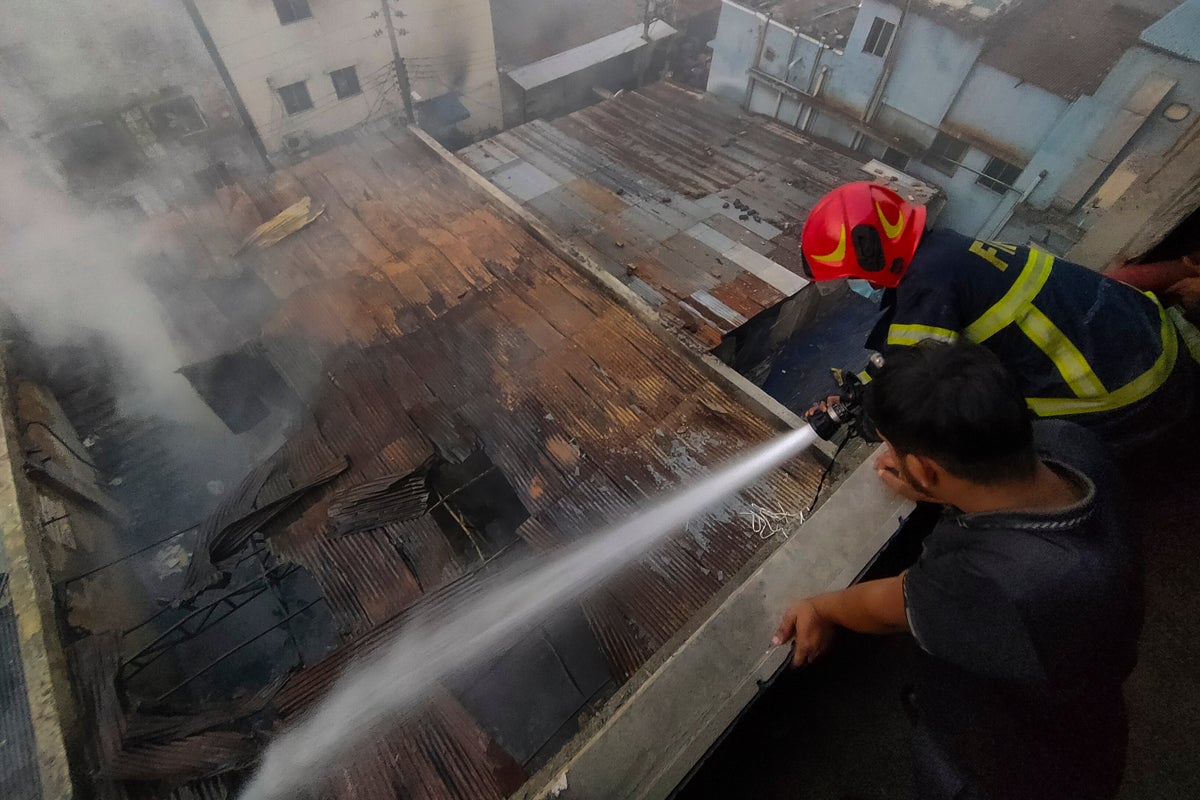An Indian green card holder who has been detained by US Immigration and Customs Enforcement agents for more than two months is battling a brain tumour and a heart condition, according to his family and attorney.
Paramjit Singh, 48, an Indiana resident who has lived in the US for 30 years and runs a chain of gas stations, was detained by ICE agents at a Chicago airport on 30 July as he was returning from a trip to India.
Mr Singh’s detention was “nothing short of horrific” for him and his family as he was battling a brain tumour and other health conditions without proper medical support, his attorney, Louis Angeles, was quoted as saying by Newsweek.
Mr Singh’s wife raised concerns over her husband’s health in detention saying he was getting weaker by the day because he was allegedly being kept in a cold room with no blankets.
ICE authorities previously cited a 26-year-old case for detaining Mr Singh, although his family and attorney claimed there were no active cases against him and he had already served time in that old case.
Mr Singh’s detention is part of president Donald Trump’s crackdown on undocumented immigrants in the US, specifically those with violent criminal records.
The crackdown has seen over 200,000 people arrested and some 50,000 detained so far this year, with many being seized while going to work, outside courthouses, and in store parking lots.
Major crackdowns in cities like Boston and Chicago have seen families hole up in their homes, afraid to leave and risk detainment. In September, ICE agents shot a man dead in Illinois after he allegedly resisted arrest and hit officers with a car.
Mr Singh was just 22 years old when he arrived in the US in 1994 with his father, who was a US citizen. The family bought a gas station in Liberty, Indiana, and Mr Singh was tasked with handling its operations.
The gas station had a payphone and people living in the area would often use it to make calls abroad. Mr Singh said that at the time he, like many others, thought the phone was free and everyone would make calls to India and other countries for long hours.
However, following a complaint, Mr Singh was charged with a felony, instead of a misdemeanour for a minor offence, and was ordered to pay a $4,137.50 fine and remain in prison for 10 days. He completed his sentence and paid the fine but his conviction blocked his US citizenship.
Some 26 years later, the case became the reason for his detention at a Clay County detention centre in Indiana.
Mr Angeles said the case was a "minor infraction for which he has already taken full accountability, served his time, and paid his debt to society”.
He claimed that efforts to secure Mr Singh’s release had been “exhaustive but frustrating” as tactics were being deployed “to prolong his detention”, despite authorities “being fully aware of his severe medical condition”.
He said Mr Singh needed emergency surgery for his tumour but the US government was “holding him without justifiable cause, exacerbating his health risks and causing immense distress to his family”.
Mr Singh’s wife, Lakhwinder Kaur, told the Indian media outlet Quint that her husband had visited India at least 20 times over the last three decades and never faced an issue.
“We worry about his condition. The tumor worsens under stress. He has also lost so much weight. It's hard to live without family,” she said, adding that she was speaking with her husband for five minutes every day.
“My husband is growing weaker. In the few minutes I get in a day to speak to him, he cries sometimes. My son has his exams coming up, but he can't focus,” she added. “He keeps thinking about how he can get his dad out. He's closer to his father than he is to me.”
Mr Singh’s family previously said it was only five days after he was detained at the Chicago airport that they were told that he was being sent to a detention centre in Indiana in connection with the 1999 payphone case.
They alleged that Mr Singh fell ill and was taken to an emergency room at the airport.
He was kept in a cold room without blankets or clothes and his luggage containing his medicines and clothing was withheld, the family alleged.
Proper medical care was only provided on 17 September after the family wrote to US Congressman Marlin Stutzman, they added.
The Independent has contacted the Department of Homeland Security for comment.

.jpeg)






















.jpeg)













 English (US) ·
English (US) ·